Which Shower Bench Style Is Right for You?
Shower benches can be sturdy, floating, fold-away or movable. Read about 6 types to find one that suits your needs
A blockier bench can also act as a design canvas of sorts. In this Dallas-area master bath, the team at Hatfield Builders & Remodelers topped this subway-tiled shower seat with a slab of quartz.
A shower bench is “an opportunity for a material change,” interior designer Angela Mechaley of m.o.daby design in Portland, Oregon, says.
A bench was a must-have for these homeowners, as one of them was recovering from knee surgery and showering could be a challenge. The Hatfield team removed a large oval bathtub and framed the new bench with porcelain subway tile on its base and on the surrounding walls, with basketweave mosaic marble tiles on the floor.
A shower bench is “an opportunity for a material change,” interior designer Angela Mechaley of m.o.daby design in Portland, Oregon, says.
A bench was a must-have for these homeowners, as one of them was recovering from knee surgery and showering could be a challenge. The Hatfield team removed a large oval bathtub and framed the new bench with porcelain subway tile on its base and on the surrounding walls, with basketweave mosaic marble tiles on the floor.
A built-in bench doesn’t have to take up an entire side of a shower. Here, interior designer Laura Hunt tucked a narrower bench in a shower alcove that can also serve as a niche.
Things to consider. A built-in bench typically takes up more space, may be pricier than other bench options and doesn’t allow for a wheelchair to roll under it.
Custom building it, however, does allow for the bench to feel more integrated into the overall design and for some added creativity, as seen in this wavy design by John Kraemer & Sons.
Custom building it, however, does allow for the bench to feel more integrated into the overall design and for some added creativity, as seen in this wavy design by John Kraemer & Sons.
2. Floating
For a minimal, modern look, a floating bench may do the trick. This type can be made using a variety of materials. The San Francisco-area shower seen here has a bench of Caesarstone reinforced with a 1½-inch tube steel frame, according to design firm Hulburd Design. Teak and other materials are also common for floating benches. A narrow ledge like this may provide just enough of a shelf for resting one’s foot if shaving legs is the primary use.
For a minimal, modern look, a floating bench may do the trick. This type can be made using a variety of materials. The San Francisco-area shower seen here has a bench of Caesarstone reinforced with a 1½-inch tube steel frame, according to design firm Hulburd Design. Teak and other materials are also common for floating benches. A narrow ledge like this may provide just enough of a shelf for resting one’s foot if shaving legs is the primary use.
Because space is visible underneath a wall-mounted bench, this setup often results in an overall airier feel. It also can make a visually interesting design statement or even provide storage, as seen in this Toronto-area bathroom.
Things to consider. Depending on its height and depth, a floating bench can potentially accommodate a wheelchair user. Professional installation is particularly important with a floating bench, to ensure that the seat is strong enough for sitting. This teak bench is structurally supported by three low-profile brackets, according to Hickox Williams Architects.
3. Folding
If those using the shower won’t need a bench all the time, a folding version is a good option. And it needn’t be clinical-looking. The fold-up bench that designers Mechaley and Matthew O. Daby of m.o.daby design chose for this Portland, Oregon, guest bathroom was added with practicality and style in mind.
Wanting to incorporate accessibility as well as their clients’ sense of humor into the project — and create a sense of playful lightness in a dark basement space — the team embraced a public swimming pool motif. The folding bench was central to that vision, both because it gives off a locker room vibe and because it’s easy to tuck away when not in use. “We saw an opportunity to do something a little bit off the beaten path,” Daby says. Though the clients didn’t have children at the time, the whimsical design is kid-friendly.
The bench’s slightness in the context of the rest of the bathroom also made it a good fit, Mechaley says.
“The impact of the blue is heavy there, so I really liked this single floating wood element,” she says. “It doesn’t feel heavy, it feels lighter, versus if that was a whole bulk slab taking up that corner.”
If those using the shower won’t need a bench all the time, a folding version is a good option. And it needn’t be clinical-looking. The fold-up bench that designers Mechaley and Matthew O. Daby of m.o.daby design chose for this Portland, Oregon, guest bathroom was added with practicality and style in mind.
Wanting to incorporate accessibility as well as their clients’ sense of humor into the project — and create a sense of playful lightness in a dark basement space — the team embraced a public swimming pool motif. The folding bench was central to that vision, both because it gives off a locker room vibe and because it’s easy to tuck away when not in use. “We saw an opportunity to do something a little bit off the beaten path,” Daby says. Though the clients didn’t have children at the time, the whimsical design is kid-friendly.
The bench’s slightness in the context of the rest of the bathroom also made it a good fit, Mechaley says.
“The impact of the blue is heavy there, so I really liked this single floating wood element,” she says. “It doesn’t feel heavy, it feels lighter, versus if that was a whole bulk slab taking up that corner.”
Benches are particularly useful for older homeowners, those with elderly guests and those who plan to age in place, but they can really work for anyone. Folding benches, especially, can work for those who want the feature to be low-profile.
“Accessible design always makes sense, can be well hidden and [is] beautiful,” Barbara Grushow of Barbara Grushow Designs says. “Most of the time when I bring it up, clients hurriedly dismiss the notion…. There is a lack of awareness of how easily it can be incorporated and systems can be put in place for a later time — and a genuine fear of it. People think, ‘I won’t ever need that,’ or don’t want to think about the reality if it might be needed one day.”
In this case, Grushow, who has a special interest in accessible design, got this small teak bench and its corresponding hardware on Houzz and paired it with a curbless entry, wider doorways, a wall-mounted sink and other details that would work for the home’s older occupants.
Even if homeowners are relatively young, a simple bench like this one can be smart to add for other reasons, Grushow says.
“Imagine a pregnant woman, or a person after knee surgery or a sprained ankle. Grab bars and shower benches are amazingly helpful, useful and a great safety measure in those types of instances as well, let alone for an elderly person or someone who is permanently disabled,” she says. “We all have days where a bench, and if you are lucky enough to have a hand shower, would be a very nice way to relax and bathe.”
“Accessible design always makes sense, can be well hidden and [is] beautiful,” Barbara Grushow of Barbara Grushow Designs says. “Most of the time when I bring it up, clients hurriedly dismiss the notion…. There is a lack of awareness of how easily it can be incorporated and systems can be put in place for a later time — and a genuine fear of it. People think, ‘I won’t ever need that,’ or don’t want to think about the reality if it might be needed one day.”
In this case, Grushow, who has a special interest in accessible design, got this small teak bench and its corresponding hardware on Houzz and paired it with a curbless entry, wider doorways, a wall-mounted sink and other details that would work for the home’s older occupants.
Even if homeowners are relatively young, a simple bench like this one can be smart to add for other reasons, Grushow says.
“Imagine a pregnant woman, or a person after knee surgery or a sprained ankle. Grab bars and shower benches are amazingly helpful, useful and a great safety measure in those types of instances as well, let alone for an elderly person or someone who is permanently disabled,” she says. “We all have days where a bench, and if you are lucky enough to have a hand shower, would be a very nice way to relax and bathe.”
Things to consider. Like floating benches, folding benches require substantial structural reinforcement and professional installation. It’s also important to consider where they’re installed and the type of shower head used.
“A bench attached to the wall but [with] no ability to properly point the water to the right area will be problematic,” Grushow says. “The proper placement of the bench is key.”
“A bench attached to the wall but [with] no ability to properly point the water to the right area will be problematic,” Grushow says. “The proper placement of the bench is key.”
6. Double-Duty Ledge
Using the edge of a tub deck for a shower bench, as design-build firm LD&A did here, can be a sleek space-saver. It also cuts down on materials and can give the bathroom a cohesive look.
“When we do the sort of tub deck protruding into the shower, we can do some interesting shapes and play with the geometry a little bit more,” m.o.daby’s Mechaley says. “That’s what we’re always looking to do when we’re doing benches, to make sure they look like they’re part of the shower, they’re on purpose and not just added in the corner after the fact without much thought.”
Using the edge of a tub deck for a shower bench, as design-build firm LD&A did here, can be a sleek space-saver. It also cuts down on materials and can give the bathroom a cohesive look.
“When we do the sort of tub deck protruding into the shower, we can do some interesting shapes and play with the geometry a little bit more,” m.o.daby’s Mechaley says. “That’s what we’re always looking to do when we’re doing benches, to make sure they look like they’re part of the shower, they’re on purpose and not just added in the corner after the fact without much thought.”
Things to consider. A separate tub with a deck is required for this configuration, which means it might not be a great fit for smaller bathrooms but does provide an option that can grow with young children. San Francisco-area design firm Melinamade Interiors merged two young sisters’ small separate bathrooms into the one larger room seen here. The tub and shower combination with the adjoining bench keeps things flexible while still using the space efficiently.
Ready to create the shower you desire in your bathroom? Cabinet-S-Top can help! Located at 1977 Medina Road, Medina, OH 44256 | 330.239.3630 | www.cabinet-s-top.com
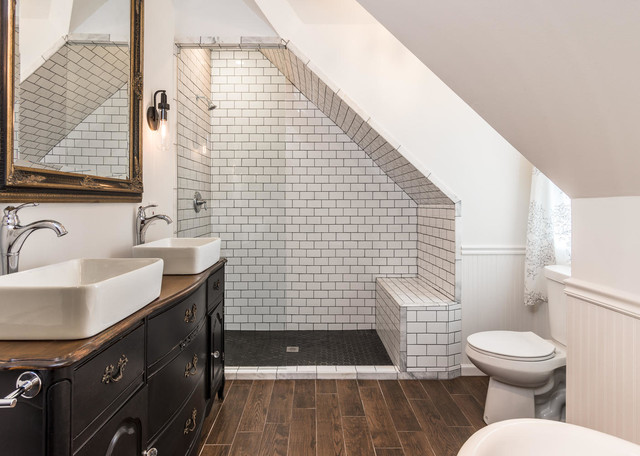
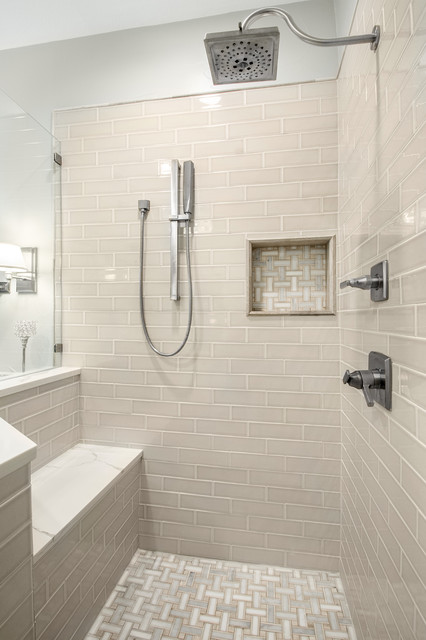

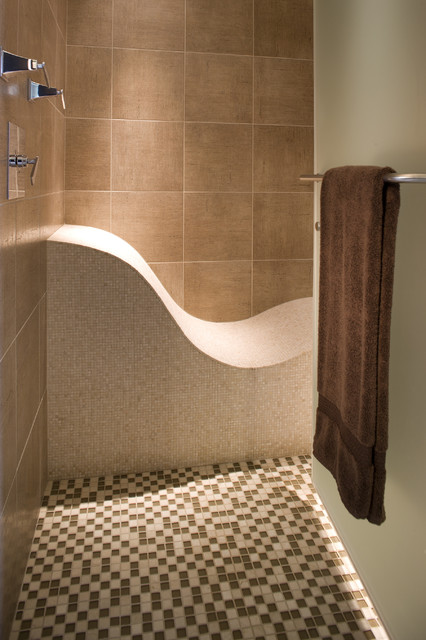
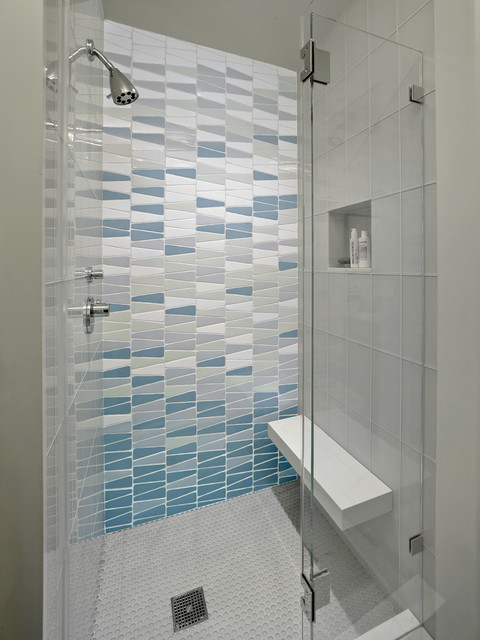
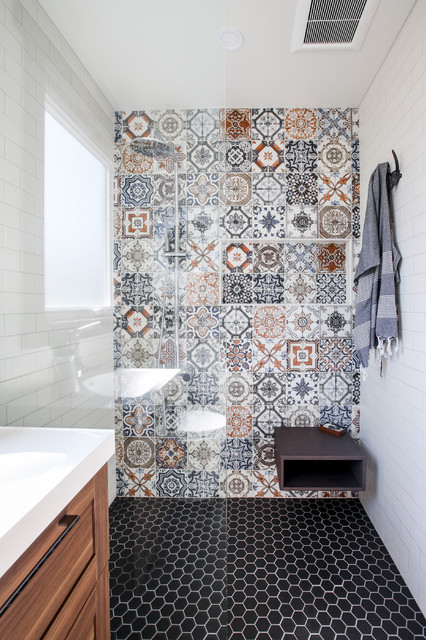
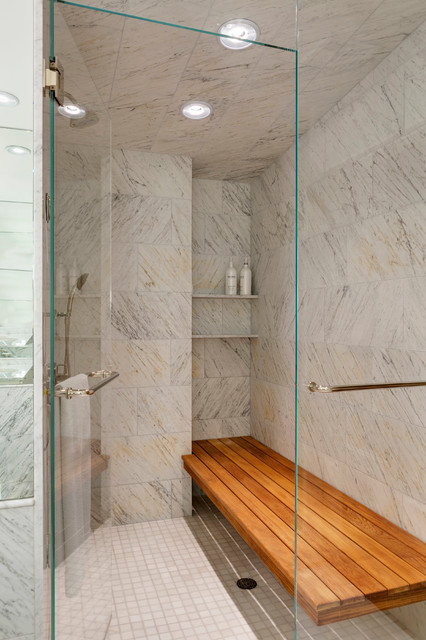
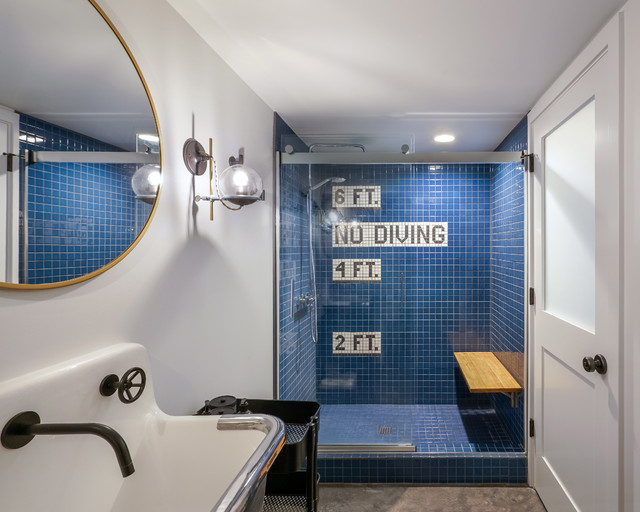
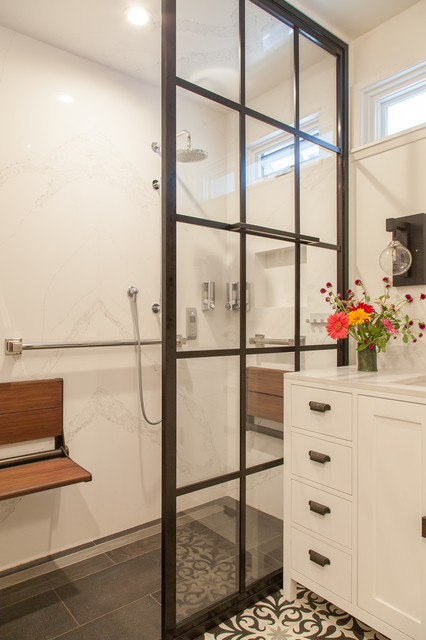
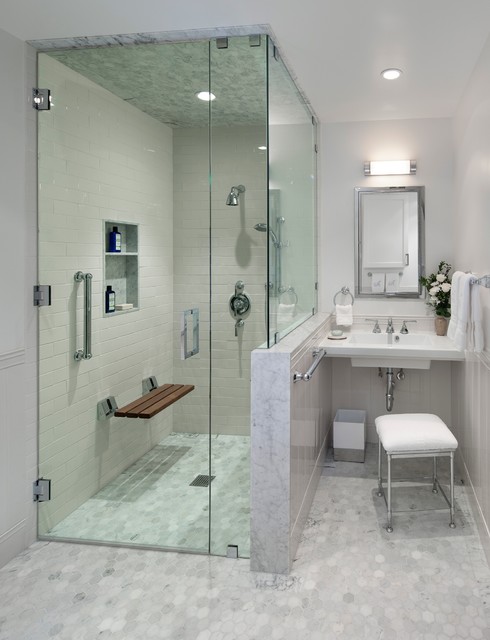
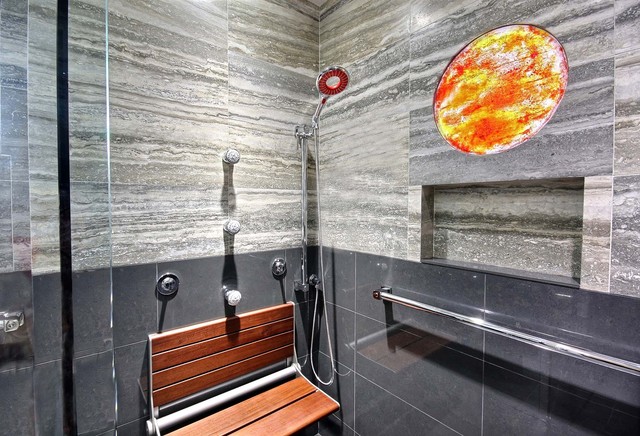
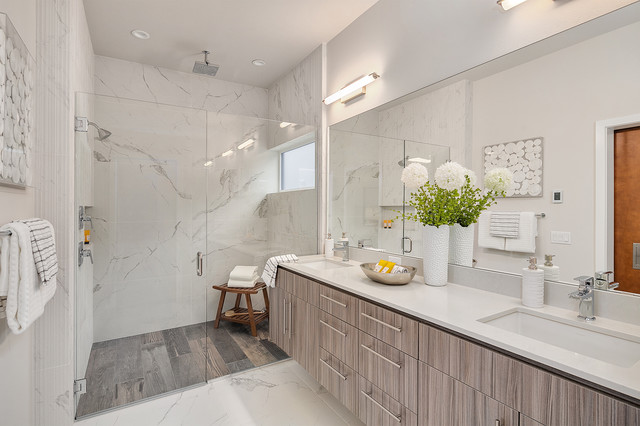
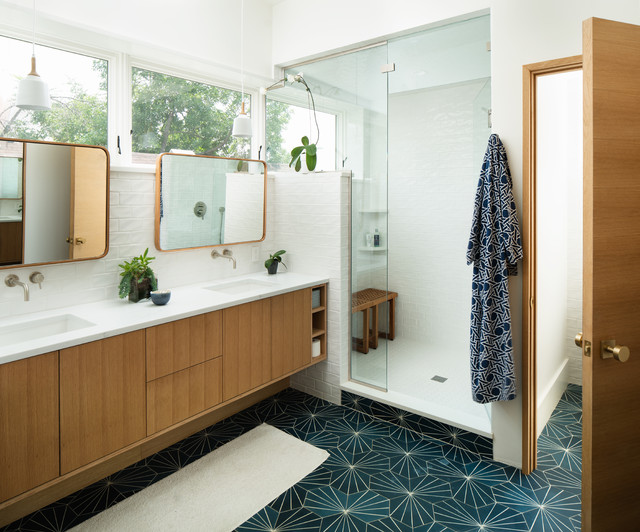
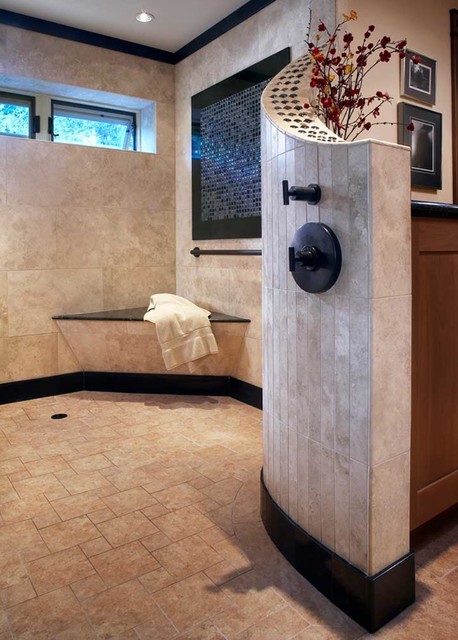
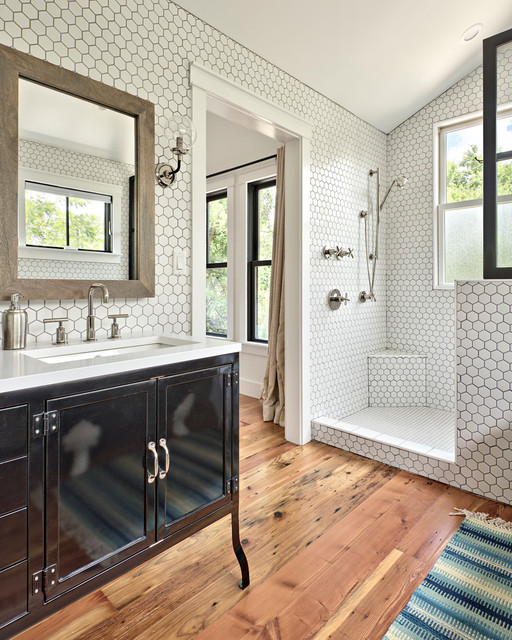
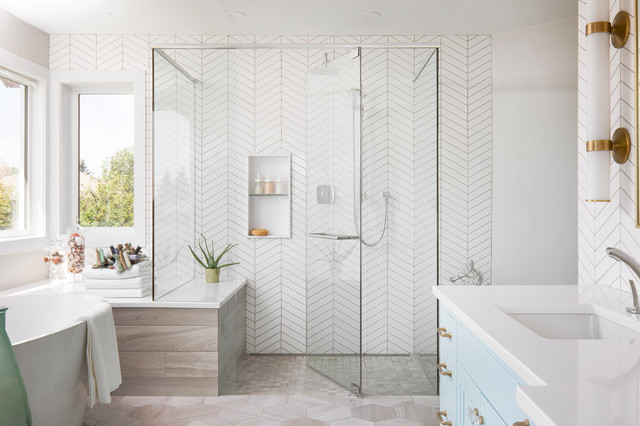
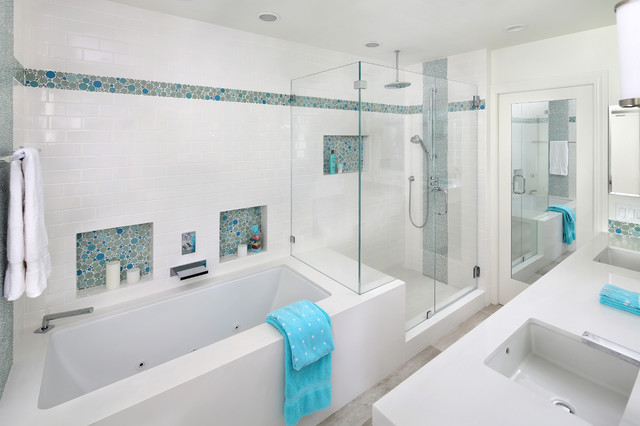

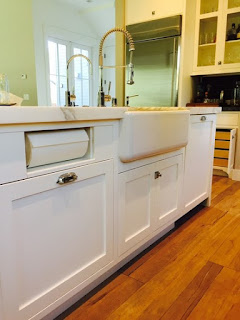
Comments
Post a Comment